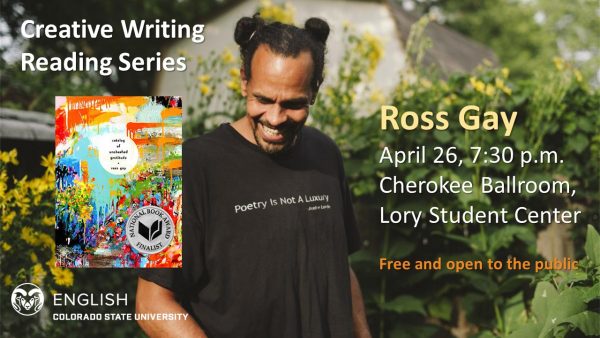This MFA Thesis Reading blended together MFA poetry and fiction writers: Ryann Peats (Poetry), Lauren Matheny Gee (Fiction), and David Mucklow (Poetry). Once again, the Gregory Allicar Museum of Art was filled with people eager to hear the work of these three MFA candidates.
Ryann Peats, eloquently introduced by professor Dan Beachy-Quick, read excerpted poems from her final collection. Through his own poetic language, Beachy-Quick spoke of the way Peats weaves together many threads to create a vaster tapestry of harmony. One phrase that resonated with me is the idea that “to hear is to be healed,” something Peats was able to do with her poetry.
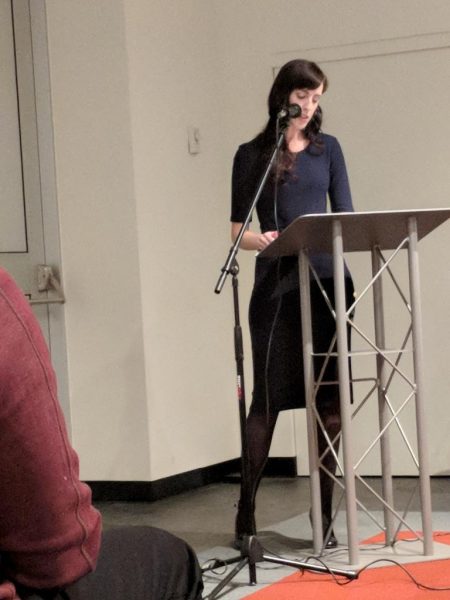
As Peats explained before reading, these poems follow 2017, a year in the life of a queer body. Some of her poems were inspired by Peats’ work at a local women’s crisis center. Titles of poems were repeated, reminding us “It’s 2017,” a dangerous year for queer people. Each poem moved between these heavier issues, discussing how violence accumulates on the body, her body, bodies of others, bodies of other queer bodies.
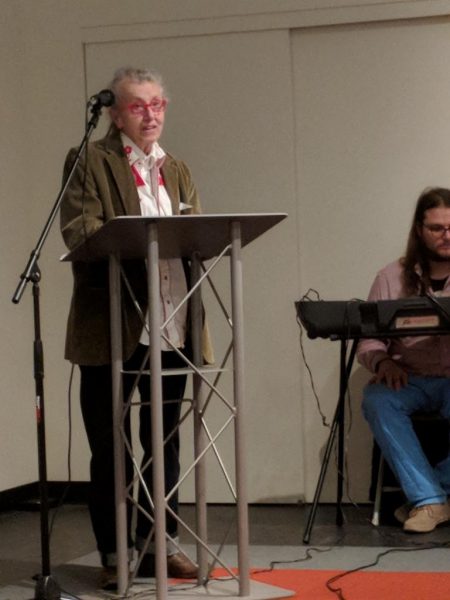
Following Peats was Lauren Matheny Gee, introduced by Leslee Becker. Becker explained that Matheny Gee has a long list of interests, some including acting, singing opera, and journalism. (Yes, she denied Becker’s request to sing opera before her reading.) Matheny Gee’s novel, eight years in the making, is about bodies gone, and bringing bodies to life. The excerpt from her novel dealt with heavy issues, explained through the death of the narrator’s ex-husband. The entire book switches between old emails from her ex-husband, and the narrator’s process of grieving for his death.
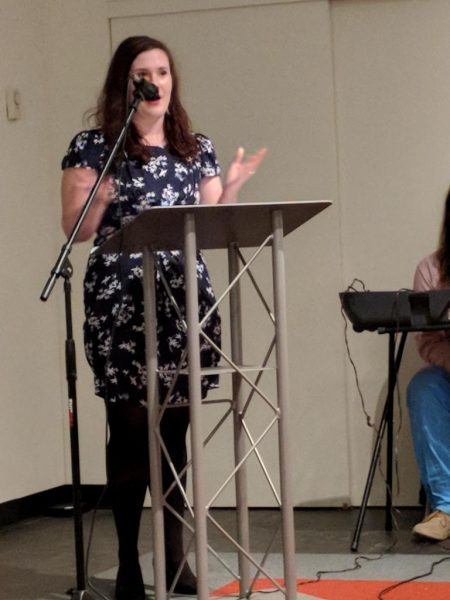
At some points, through the ex’s voice in the emails, Matheny Gee was able to make dark moments comical. The narration was exceptional, the powerful voice pulling me through the stages of grief and the traces of life we leave behind, like in unsent emails. In one moment, we find that the body has been cremated, a body missing from the mother that comments on what is left behind when the body no longer exists.
Our last reader was our second poet of the evening, David Mucklow. Camille Dungy introduced Mucklow’s poetry, their relationship tracing back to before Mucklow joined the MFA program at CSU. Dungy explained that good poetry can change the way you see the world, something Mucklow does in his poetry when he expresses things like the grandeur, glory, and possibility of it all.
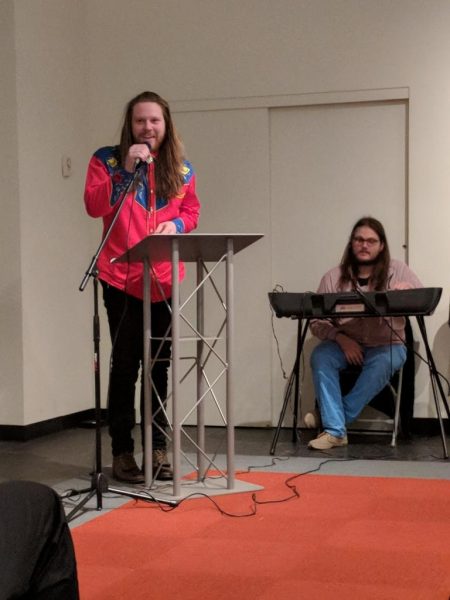
Mucklow’s transcript, called Still the West, draws from his own experiences in small, Colorado towns. In fact, each poem provides a new lens on ways to look at nature, ranging from a dead pine tree to the barbwire of a cattle fence. The calm, smooth meter of each poem brought listeners into each encounter with nature. As Mucklow ends one of his moments, he explained that “in every fading barn is a barn that is my own.”
This MFA thesis reading did an amazing job showing how dedicated and talented these three MFA candidates are.
Join us for our next reading!
